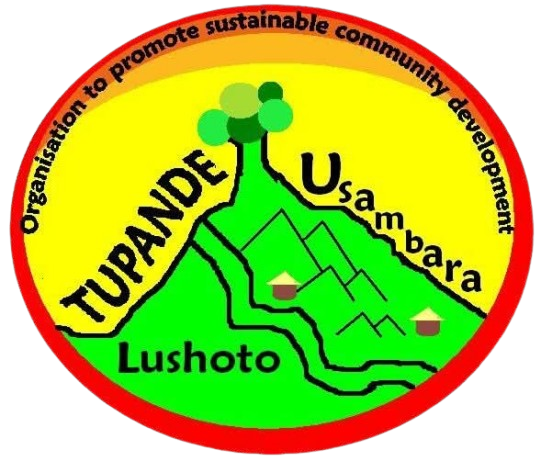Lushoto District is located in the West Usambara Mountains in the Tanga Region, in northeastern Tanzania. The Usambara Mountains are home to a rich biodiversity and were originally covered by natural rainforests before the first human settlements appeared in the 18th century. Today, only about 10% of these rainforests remain, preserved as a Natural Reserve.
Challenges Facing Lushoto District
Climate change, water shortages, and a decline in biodiversity pose serious challenges to the district, making life difficult for the majority of residents, who rely on agriculture for their livelihoods. Most people in the area practice subsistence farming, which is increasingly under pressure due to environmental changes. In addition to these issues, various other challenges must be addressed to improve living conditions in Lushoto District.
One of the biggest obstacles to development is high population density and rapid population growth. As a result, land scarcity has become a major concern. Combined with the effects of climate change—such as deforestation, water shortages, loss of biodiversity, and soil degradation—and the economic pressure on farmers to sustain their livelihoods, there is an urgent need for effective land, water, and resource management in the area.
Lushoto town, the district’s administrative capital, is the largest center in the region, with approximately 20,000 residents. The entire Lushoto District has a population of around 500,000 people, with approximately 45% male and 54% female. Another challenge affecting rural communities is migration—many men aged 18 to 40 leave for larger cities in Tanzania in search of work, as employment opportunities in the district remain scarce.
TUPANDE Usambara Lushoto’s Agricultural and Ecological Goals
Our objective is to achieve food security and stable living conditions for all households in the district by promoting integrated and sustainable agricultural methods, improving resource management, and raising awareness of ecological responsibility.
Our Activities
We have initiated a project in collaboration with one of the villages featured in our multi-day tours, supporting the community by establishing tree nurseries and organizing tree-planting initiatives. Additionally, we have partnered with a local primary school, where we conduct environmental education workshops in cooperation with teachers and local experts.
Find out more about our projects and how you can get involved!
